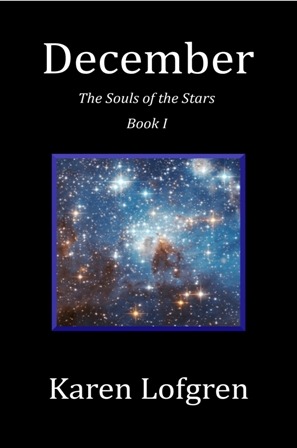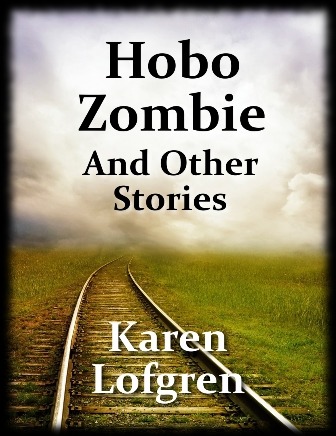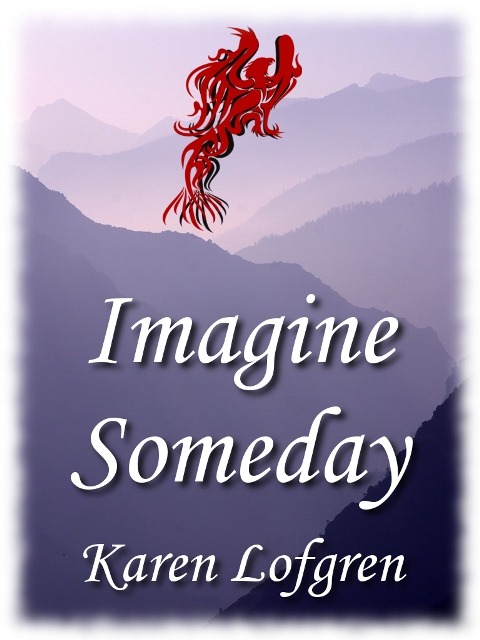On Neelix
Labels:
character depth,
character development,
examples,
hated characters,
neelix,
star trek,
star trek: voyager
·
Posted by
Anonymous
at
5:10 PM

I'll be the first to admit Neelix is rather annoying in the first three seasons or so. But he does get better over the course of the series, and as early as season 1 ("Jetrel") we were starting to see who Neelix really was. In "Jetrel," Neelix is confronted by the scientist who created the weapon of mass destruction that destroyed his home and killed his family. It's essentially the same kind of episode as Deep Space Nine's "Duet," which deals with Holocaust parallels while "Jetrel" is an allegory about the atomic bombings of Hiroshima and Nagasaki. We learn that Neelix was a deserter from his army during the war and thus survived because he had been away from his home at the time of the explosion. And he has never gotten over this. Every single thing we see Neelix do or say is a direct result of the horrors he's been through and seen, and he covers that up with a smile and a need to make others' lives better. You could argue this doesn't make him any less annoying, and, well, that's a matter of opinion. But I don't think anyone can say he's a bad character because this is such an important trait of his character that is done so well. The way Neelix acts in spite of what he's feeling is something people actually do. I think anyone who has had depression would agree with me, and this makes Neelix for an excellent character to study for any writer.
"Mortal Coil" may be offensive to some, but it certainly is another example of the depth of Neelix's character. In this episode, Neelix dies for several hours before being revived, and to his immense disappointment he does not experience the Talaxian afterlife. We see and can feel how torn up he is by this revelation - that the idea that he will see his loved ones again is part of the reason he's been able to keep going for so long. While the episode may end with a depressing message, it also teaches Neelix something important - that he needs to stop longing for the people he lost and focus on the new ones in his life that are right in front of him.
And focus on them he does. "Once Upon A Time," while mostly forgotten by the fans, is one of those episodes that I would argue is criminally underrated. For those of you who don't know, in "Once Upon A Time," Neelix's goddaughter, Naomi Wildman, is in his care while her mother is on an away mission. Things go wrong and it quickly becomes clear the away team may not make it back alive. Neelix is then faced with a dilemma: to tell Naomi or hide the truth from her. Without much thought he immediately chooses the latter option. This isn't because he rationally thinks she can't handle it. It's because he wants to shield her because he was never shielded from such pain during his youth. It's his own feelings he's thinking about throughout the course of the episode - not her's. And he does realize this by the episode's conclusion.
In summary, Neelix is actually a very deep character with relatable traits and flaws, and I wish more people acknowledged this.
December - The Souls of the Stars Book 1
Labels:
alien invasions,
aliens,
occupations,
science fiction,
space opera,
war
·
Posted by
Anonymous
at
9:22 AM


December
Karen Lofgren
Series: The Souls of the Stars Saga (Book 1 of 2)
Release Date: August 9, 2014
Genre: Science Fiction [Space Opera]
Over a hundred years in the future, Earth has fallen under the invasion of a hostile alien race—the Drevi. Half the population has been captured as specimens, while the rest are fighting for their lives in a resistance movement that has achieved more defeats than victories.
Ted Anderson, a 42-year-old information specialist from the American States, thought nothing could save him from his new life. In spite of being an aide to a leading Drevi scientist who treats him well, he is reminded every day what he truly is. A specimen. An Inferior with no future.
Then two strange new aliens arrive as representatives of their government, wanting to free humanity from the invading force. And all of Ted’s dreams come true. He’s on a starship, shooting through space at speeds he never before imagined. And most of all, he is free again.
Now Ted is drawn into a dangerous conflict to save all he knows and loves. But the fate of more than just humanity might rest on his shoulders.
In this stunning new science fiction epic, author Karen Lofgren weaves a tale of the human condition, and how even in the darkest of times, it can shine through into the future.
Cover image courtesy of NASA, ESA, and the Hubble Heritage Team (STScI AURA)-ESA Hubble Collaboration. This publication is in no way endorsed by NASA.
Buy:
Ebook:
For Kindle
On Smashwords
For Nook
Paperback:
On Amazon
On Createspace
At Barnes and Noble
Hobo Zombie and Other Stories
Labels:
fantasy,
science fiction,
short stories,
short story collection,
urban fantasy,
zombies
·
Posted by
Anonymous
at
9:15 AM


Hobo Zombie and Other Stories
Karen Lofgren
Release Date: September 16, 2013
Genre: Urban Fantasy, Fantasy, Science Fiction
A zombie becomes a hobo because of exile and a desire for freedom. An ancient dragon ventures down from his sacred mountain into modern North Korea. A teenage girl finds a mermaid washed up on a beach. A young woman witnesses aliens crash land in a corn field. Hobo Zombie and Other Stories features nine short stories by Karen Lofgren, author of Imagine Someday. Nine stories that are beautifully fantastical yet strangely real.
Buy:
Ebook:
For Kindle
On Smashwords
For Nook
On Kobo
Imagine Someday
Labels:
contemporary fantasy,
fantasy,
griffins,
mythical creatures,
new adult,
novel,
unicorns,
urban fantasy,
wyverns
·
Posted by
Anonymous
at
9:54 PM


Imagine Someday
Karen Lofgren
Release Date: June 5, 2013
Genre: Urban Fantasy, New Adult
A dark, New Adult urban fantasy novel.
Diego Avery’s life has never been an easy one. His father was executed for murder when he was a teenager. He’s hosting the spoiled son of a rich British businessman. He lives alone with his childhood best friend. And he’s been hiding a griffin named Aglaciel in the forest on his property for the last five months.
However, Aglaciel soon grows tired of waiting. He is young and wants to know more about his kind, but unfortunately remembers nothing of his life before meeting Diego. And Diego’s questions about Aglaciel’s origins have gone unanswered, making radical change to their situation all but impossible.
Some questions are resolved but even more are posed when Diego’s girlfriend discovers an injured unicorn in a public park. Someone, or something, is hunting the last Fantastical Creatures to extinction. Before he knows it, Diego becomes embroiled in the plight of the Fantastical Creatures and their fight to survive.
Together with his friends, Diego embarks on a journey to find the answers to his questions. But will he like the answers he receives, and can there be a happily ever after?
In this tale of struggle and hope, debut author Karen Lofgren encourages us all to imagine a better someday, and then fight to make it happen.
Buy:
Ebook:
For Kindle
On Smashwords
For Nook
On the iBookstore
Paperback:
On Amazon
On CreateSpace
At Barnes and Noble
Creating and Building Good Characters
Labels:
character creation,
character development,
writing advice,
writing characters
·
Posted by
Anonymous
at
8:19 PM

A good character is a well-rounded
character. It doesn’t matter if the character is good, bad, or
morally ambiguous. It doesn’t matter if the character is male,
female, or somewhere in between. What matters is that they are a
well-rounded, well-drawn character that feels organic to your
audience.
Elements of Good
Characters:
- A well-defined personality.
- They want something.
- They have relationships with other characters.
- They have flaws.
- They change and develop over the course of the story.
This article is not just for fiction
writers. My advice applies to any art that requires
character-building, from video games to role playing.
Creating a Character
Things to keep in mind when creating a
character:
- What will this character’s role in the narrative be?
- What does the character look like?
- What does the character want?
- What are some base personality traits of this character?
- What are this character’s strengths and weaknesses?
- Who/what does this person care about, if anyone/anything at all?
- What is the gender/race/religion/species of this character and how might that affect his or her life experiences and world outlook?
- How will this character’s experiences in the story change him/her, or will he/she change at all?
Ideas For Inspiration
Not sure where to get “inspired”
for a certain character? Here are some common methods for gaining
ideas:
- People you know. Authors will say this a lot and it’s true. You undoubtedly have noticed aspects of people you spend a lot of time around. Take bits and pieces of them, from their interests to their weird habits, and incorporate them into your new character to give him or her more depth.
- People you don’t know. People you don’t know are just as much a source of inspiration as your close friends and family. Watch people in a public place and see how they interact with one another, or take inspiration from the weird store owner down the street.
- Your life experiences. Never underestimate the power of including snippets of your life experiences in your writing. Most people do this subconsciously without realizing it. Perhaps your character and you have nothing in common except for the fact that you both like coin collecting or that you both have a daughter. It helps give your character depth and it’s something you’re personally familiar with.
- People you’re interested in. For example, even if you’re not a Native American, you can be interested in Native American cultures or issues. Do a bit of research. Interview people. But remember that people are people, like you, no matter their gender, religion, or ethnic origins, and you need to write them as such.
- Fictional characters. You’ve got to be a little careful with this one because you can’t just copy someone else’s character. On the other hand, well-drawn fictional people are people too, and there’s nothing wrong with being inspired by traits of your fictional heroes.
Building Characters Within the Story
When you’ve started writing the
story, here are some ideas for how to continue building a character
as you write:
- Determine how, or if, the character reaches his or her goal. Perhaps they don’t get what they were searching for but gain something much more valuable instead.
- Have them change over the course of the story based on events that happen. Note this does not necessarily mean they become a better person. It’s just as possible to have a character who becomes worse as the story goes on. They might not even change at all, and that might be the point. So do what works for the character and for the story.
- Know what the character’s afraid of. You don’t need to necessarily come out and say this in the narrative, but it can certainly be helpful in determining a character’s actions.
- Give the character interests, and not just one or two. This is a problem I’ve seen a lot recently. People have interests outside of the big things in their lives.
- Have the character tell an anecdote or two from his or her past. Don’t overuse this one, but I’ve found having a character say or think of things that have happened to them helps flesh them out. Our minds wander and think of the strangest things, even at random times.
- Develop the character’s relationship with other characters. By this I don’t necessarily mean romantic relationships. If your main character has a best friend or someone they’ve just met, they’re going to interact with that other person. Put these two characters in the same room and have them have a conversation. See what happens.
- Have the character’s flaw(s) REALLY screw something up. A flaw isn’t a flaw unless it causes problems for the character and/or the people around him/her.
Other Tips
- Don’t be afraid to experiment! The old adage “write what you know” is actually pretty bad advice when taken too literally. Unless you really just want to write one type of character, you’re going to need to expand your horizons. And the only way to do that is to try new things.
- Just start writing the story and see where the character goes. This may not work for some writers but for others this is the best way for them to write. You can always go back and edit later to fix continuity issues.
- Don’t be afraid to cut characters. If a character isn’t working in your story, they might need to go. Perhaps you can find room for them in a future work. Inversely, don’t be afraid to add a character if you need to. Just be careful that he or she fits into the story.
- Write a character sheet. Again, this isn’t something all authors do, but it certainly works for some. A character sheet can help you keep track of your character as you write the story by giving them basic information, personality traits, and goals. It can also help you visualize different characters relationships with each other.
- Be careful with dialects and accents. Having a character speak with a strong accent can be effective, but make sure it doesn’t detract from the writing.
- Don’t get too caught up on flaws/a tragic backstory. A person is more than their problems.
- Get feedback. This is true about any creative expression, but if a character isn’t working or you’re not sure what to do with them, bounce ideas off someone else. This doesn’t have to be a writer, and in fact, shouldn’t always be. A casual reader’s outsider point of view can be invaluable.
- Details, Details, Details! It’s not the grand, sweeping character arcs that set your story and characters apart from the rest. It’s the details of their lives and their behavior. If you’re worried your character isn’t “original” enough, add details about them to make it so!
Introduction
Labels:
author blog,
creative writing,
fantasy author,
fiction,
publishing,
publishing press,
science fiction author,
writing
·
Posted by
Anonymous
at
8:09 PM

I've migrated around the Internet a little when it comes to my blog for a variety of reasons, but hopefully this one is here to stay.
I began working on Imagine Someday, my first novel, in 2007 or so, and it was finally published on June 5, 2013. It was soon followed by December, my second novel and the first book in The Souls of the Stars Saga, in August 2014. I have a BA in creative writing and history from Knox College and I also work as a freelance writer. While I mostly write science fiction and fantasy, I've also branched out into most other genres, including historical fiction and literary fiction. I write short stories, too, and my first collection, Hobo Zombie and Other Stories, was published in September 2013.
But the main purpose of this blog is to talk about my life experiences and my writing, as well as sharing my expertise and tips with others. I'll also talk about the media I enjoy and why I enjoy it.
I own a small press called Loyalty Press. The official website of Loyalty Press is here: http://loyaltypress.weebly.com/
Subscribe to:
Posts (Atom)




